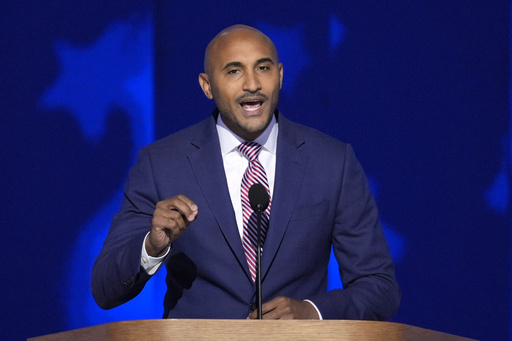
MONTGOMERY, Ala. — A federal trial is set to commence on Monday, centered on Alabama’s congressional district map that might determine the continuation of a court-imposed district which allowed for the election of a second Black representative.
A panel of three judges will deliberate on whether the congressional boundaries established by state lawmakers have undermined the electoral strength of Black residents. Previously, this same panel ruled against Alabama, prompting changes to the 2nd Congressional District, which subsequently allowed Rep. Shomari Figures to emerge victorious in the elections last November, marking a historic moment as Alabama now has two Black representatives in its congressional delegation.
Alabama is advocating for the reinstatement of the original state-drawn maps, while the plaintiffs are aiming to solidify the court-ordered district as permanent. The duration of the trial is anticipated to be at least two weeks.
“This case is fundamentally about representation. Currently, we have a voice, and we were able to exercise our right to vote to achieve this,” stated plaintiff Shalela Dowdy. She expressed hope that the court-ordered map would remain effective moving forward.
Alabama Attorney General Steve Marshall remarked that the state intends to demonstrate that the drawn map adheres to legal standards.
“Earlier hearings in this case were merely preliminary evaluations under a very tight timeline,” Marshall stated. In his comments, he pointed out that Alabama had previously triumphed in a separate legal battle that contended the state’s process for electing appellate judges statewide disenfranchised Black voters. Marshall clarified that the outcomes in court races were more a result of political affiliations rather than racial dynamics.
“We will establish in the following weeks that Alabama’s approach to congressional redistricting is lawful, regardless of whether it favors Democrats as much as the plaintiffs would like,” he added.
With a significant majority of white voters supporting Republican candidates, the congressional boundaries have historically disadvantaged Democrats who primarily rely on Black votes.
This ongoing legal dispute originated in 2021 when Black voters and civil rights organizations lodged lawsuits claiming that Alabama’s congressional mapping undermined the voting power of Black citizens. Although African Americans comprise approximately 27% of Alabama’s population, they only represented a majority in one out of seven congressional districts. The lawsuits allege that state lawmakers have violated the Voting Rights Act of 1965 by concentrating Black voters into a single majority-Black district while dispersing other Black communities to diminish their influence in neighboring districts. With each district representing around 14% of the state’s residents, these accusations underline existing inequalities within the political framework.
In 2022, the three-judge panel determined that the existing map likely conflicted with the Voting Rights Act and mandated that a second majority-Black district or a comparable arrangement be created.
The U.S. Supreme Court affirmed this assessment in a surprising 5-4 ruling in 2023, leading Alabama lawmakers to draft new district lines that the panel deemed noncompliant with their directives. Instead, the court appointed an expert to devise a new map that modified the boundaries of southeastern Alabama’s District 2, extending it westward to the Mississippi border and raising its Black voting-age population to 48.7%.
Deuel Ross, an attorney representing the plaintiffs from the NAACP Legal Defense Fund, expressed disappointment at Alabama’s reluctance to move forward with a map that is already in operation and with an elected congressperson in place.
“This type of resistance harks back to a regrettable period in Alabama’s history and is, frankly, an inefficient use of state resources,” Ross remarked. He added that the plaintiffs believe they can demonstrate ongoing intentional discrimination that should prompt Alabama’s re-subjection to the preclearance stipulations of the 1965 law.
“This is precisely the behavior that Alabama and similar states exhibited before the Voting Rights Act — a court would uncover some form of discrimination in their mapping processes or voter registration, and the state would merely repeat the same actions, albeit with slightly altered presentation,” Ross said.
Figures emphasized that the litigation emphasizes the necessity of equitable representation.
“The early rulings — including those from the U.S. Supreme Court — have affirmed that the congressional districts were probably drawn in a manner that precluded fair representation of Black individuals in Alabama,” concluded Figures.

